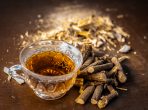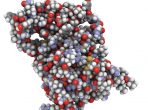Subscribe to the our newsletter to receive latest news straight to your inbox.
Seven Ways to Become Productive Parents
Why Teenagers Want to Be Loved?
Common Types of Childhood Anxiety
Things You Should Know About Muscle Brain
How Companies Can Boost the Hiring Process?
Ways to Survive a Hot Summer Day
Reasons You Are Susceptible to Mental Problems
Benefits of Yoga for Athletes
Six Dental Consideration Tips to Prevent Your Child from Getting Braces
TOP 7 Ways to Become BETTER DRIVER!
Georgia Cabins With A Water View Are Like A Home Away From Home
The Impact The Art Deco Era Had On Different Industries
First-Time Home Owner: Affordable Interior Design Ideas
What should always be in a car on a long journey?
How Sex Can Improve Your Period & How to Do It Better
SEVEN STRATEGIES TO IMPROVE YOUR WRITING SKILLS
Tips on How To Buy The Right Refrigerator For Yourself
Easy Driving: 10 Options that Should be Included in Each Modern Car
Luxury Driving: 6 Chic Premium Cars to Feel Like a Celebrity
HOW DO I PREPARE FOR MY FIRST YEAR OF LAW SCHOOL?
How Alcohol Causes You To Gain Weight?
How to Price Your Car? | Helpful Guidelines
How to Make an Effective Parenting Plan?
Data Management Challenges Facing Small Business Owners
Reasons Children Become Fussy Eaters
Health Benefits of Memory Foam Mattresses
3 Ways to Improve Your Body Positivity
How Aging Athletes Can Stay in Shape?
How to Make Children Perform Better at School?
How to Prevent Regression on Autistic Children?
Believe It or Not: 10 Myths on Studying in the USA
How Digital Marketing Company Can Help Your Business
TOP 5 MINI CARS For Solo Travelers
What Should Be Included In The Home Inspection Checklist
Festival of Lights: Buy These Exciting Smartphones in 2019
Benefits and Risks of Sunlight
The Economic System of the United States of America
What to See in Portugal? 5 Amazing Sights of Algarve
How Parents Can Gain Respect From Children?
Ultimate San Francisco CITY GUIDE for Youngsters: Places to See by Car
What to Do When Children Misbehave?
Places in Calgary You CANNOT SEE Without a Car
How to Prepare Children for the First Day of Preschool?
Travel Medical Insurance: All the basics you need to know
Beneficial Herbs for Athletes
How Can a Professional Assignment Help Contribute to Your Success as a Student?
Men, Can These 7 Intimacy Tips Save Your Sex Life?
Six best life hacks for the motorists
Negative Impacts of Air Pollution
How To Handle The Last Minute Moving – Helpful Tips
Health Risks of X-Ray Scans
How Parents Should Deal With Fussy Eaters At Home?
Why Teenagers Become Rebellious So Easily?
5 Best Way To Find House Cleaning Services
3 Tips to Remove Profile Pictures from Zoom
How Athletes Should Deal With Anxiety
Long and Spacious: 5 Most Luxurious Estate Cars
How Alcohol Affects Athletes?
Benefits of HGH for Athletes
How to Control The Way Children Use the Internet?
How Athletes Can Recover From Knee Replacement Surgery?
How to Laser Target Your Ideal Audience Using Market Research?
Importance of Protein and Vitamin D for Athletes
The World of Cars: 10 Amazing Modern Innovations
How To Choose The Best Synthetic Grass For Your Garden
Things worth Considering for How to get into Digital Marketing
Why Parents Need to Maintain Traditional Values at Home?
These Habits May Be Making Your Period Worse
4 Best Tips To Follow For Quick Lift Repair

Benefits of Coffee for Professional Athletes
The word coffee is derived from the Arabic word ‘qahweh’ or ‘gives strength. Caffeine is the primary active substance found in coffee and it’s probably the most used drug around the world. Caffeine is found in seeds and leaves of some plants, including tea and cocoa. Energy drinks and cola soft drinks also contain caffeine….

The word coffee is derived from the Arabic word ‘qahweh’ or ‘gives strength. Caffeine is the primary active substance found in coffee and it’s probably the most used drug around the world. Caffeine is found in seeds and leaves of some plants, including tea and cocoa. Energy drinks and cola soft drinks also contain caffeine. For decades, the effect of caffeine in enhancing sports performance is already well known. We have heard advices that drinking a couple cups of coffee before a game will help. Trained athletes often show improvements in their physiology and performance. How caffeine affects your performance depends on the quantity you ingest habitually each day.
As an example, if you often eat chocolate or drink tea, then a modest amount of caffeine won’t benefit your sports performance. So, if you want to get more benefits from caffeine, you need to gradually reduce its intake. A cup of coffee contains about 100 milligrams of caffeine. It’s normal for a regular coffee drinker, but for non-drinkers, they will experience noticeable changes. If you habitually drink six cups of strong java each day, then an extra cup will give no or negligible effect. It’s the same like giving a six pack to an alcoholic, it’s just too mild. The drunkards won’t keel over in a drunken stupor. You also need to understand about side effects of caffeine, such as hallucinations, delirium, irritability and anxiety.
For non-drinkers, they can start with a cup of coffee or 100 milligrams of caffeine an hour before the game. In this case, it is important to avoid regularly drinking a cup of coffee each day, because your body will be conditioned to it. Even if you are not a drinker, you need to check whether you are sensitive to caffeine. In this case, effects of caffeine are more prominent on non-drinkers than regular drinkers.
Caffeine works by stimulating our central nervous system. Our body will use fat and spare glycogen for fuel. The release of adrenalin also increases, further increasing physical performance. Athletes appear to be affected less by the diuretic effects of caffeine, compared to people with sedentary lifestyle. If you are in a carbo-load state, then there’s higher level of glycogen in their muscles and it will be used as the primary source of fuel. Human body tends to take easier routes to accomplish a task. If you supercharge a fuel source, then it will be used first. One question is when you will get the benefit of taking more caffeine. Many say that it takes one hour before the exercise, however, studies about fatty acid metabolism showed that fat-burning effects start at around 3 or 4 hours after caffeine ingestion.
In this case, you need to experiment and find out what’s best for you. It is not a good thing to take caffeine before regular practice sessions, because you will end up becoming regular drinker. It also means that the effect of caffeine will diminish and you need to drink more coffee before the game.
Recommended Articles
-
How Sex Can Improve Your Period & How to Do It Better
5 years ago7366 views -
The Economic System of the United States of America
4 years ago4662 views -
Believe It or Not: 10 Myths on Studying in the USA
5 years ago6597 views -
How Parents Can Gain Respect From Children?
5 years ago7504 views -
How Aging Athletes Can Stay in Shape?
6 years ago6587 views -
How to Make Children Perform Better at School?
6 years ago6612 views
Leave a Reply
You must be logged in to post a comment.

















































































3extracting
1fireman
research writing services https://professionaldissertationwriting.org/
writing a doctoral dissertation https://professionaldissertationwriting.com/
best dissertation writing service uk https://helpwithdissertationwritinglondon.com/
paper writing service https://dissertationwritingcenter.com/
dissertation proposal writing services https://dissertationhelpexpert.com/
dissertation help for phd candidates https://examplesofdissertation.com/
write my dissertation for me https://writing-a-dissertation.net/
proposal and dissertation help plan https://bestdissertationwritingservice.net/
dissertation completion pathway https://customdissertationwritinghelp.com/
dissertation title generator https://dissertationhelpspecialist.com/
what does dissertation mean https://dissertationhelperhub.com/
888 online casino https://download-casino-slots.com/
vegas casino online free spins https://firstonlinecasino.org/
online casino real money no deposit bonus https://onlinecasinofortunes.com/
mohegan sun online casino pa https://newlasvegascasinos.com/
online casino deposit bonuses https://trust-online-casino.com/
vegas casino online https://onlinecasinosdirectory.org/
vegas casino online free spins https://9lineslotscasino.com/
party casino online nj https://free-online-casinos.net/
platinum play online casino https://internet-casinos-online.net/
lucky lady casino online https://cybertimeonlinecasino.com/
resort casino online https://1freeslotscasino.com/
chumba casino online gambling https://vrgamescasino.com/
firekeepers casino online https://casino-online-roulette.com/
free online casino bonus https://casino-online-jackpot.com/
bovegas online casino https://onlineplayerscasino.com/
vegas 777 online casino https://ownonlinecasino.com/
big dollar online casino https://all-online-casino-games.com/
online casino usa https://casino8online.com/
free vpn for dark web https://freevpnconnection.com/
free vpn for router https://shiva-vpn.com/
buy surfshark vpn https://freehostingvpn.com/
where to buy vpn router https://ippowervpn.net/
best vpn for firestick https://imfreevpn.net/
hotspot shield vpn proxy free https://superfreevpn.net/
best rated vpn https://free-vpn-proxy.com/
torrent vpn https://rsvpnorthvalley.com/
gay dating site younger men for older men https://gay-singles-dating.com/
dating gay bbc meet twinks https://gayedating.com/
gay military dating scam https://datinggayservices.com/
free date https://freephotodating.com/
dating sjtes https://onlinedatingbabes.com/
interracial dating https://adult-singles-online-dating.com/
intitle:dating https://adult-classifieds-online-dating.com/
rhondacaringmom online dating https://online-internet-dating.net/
single women darling side https://speedatingwebsites.com/
american singles https://datingpersonalsonline.com/
dating services https://wowdatingsites.com/
senior dating services https://freeadultdatingpasses.com/
our time dating https://virtual-online-dating-service.com/
dating sites free https://zonlinedating.com/
adult-daiting site https://onlinedatingservicesecrets.com/
riversweeps 777 online casino download https://casinosonlinex.com/
gay bi text chat https://newgaychat.com/
totally free gay phone chat https://gaychatspots.com/
chat-avenue/gay https://gay-live-chat.net/
gay fl chat https://chatcongays.com/
utah gay bi chat https://gayphillychat.com/
first time gay chat https://gaychatnorules.com/
free gay phone chat trial https://gaymusclechatrooms.com/
gay teens chat https://free-gay-sex-chat.com/
snap chat gay boy cums https://gayinteracialchat.com/
gay men webcam chat broadcast self https://gaymanchatrooms.com/
help writing a college paper https://term-paper-help.org/
cheap custom papers https://sociologypapershelp.com/
custom papers writing https://uktermpaperwriters.com/
pay to do my paper https://writepapersformoney.com/
paper writing service cheap https://doyourpapersonline.com/
write my paper for me in 3 hours https://top100custompapernapkins.com/
paper writing company https://cheapcustompaper.org/
college paper writer https://writingpaperservice.net/
custom note paper https://buyessaypaperz.com/
write my persuasive paper https://mypaperwritinghelp.com/
buy literature review paper https://writemypaperquick.com/
paper writing services https://essaybuypaper.com/
do my paper for me https://papercranewritingservices.com/
pay people to write papers https://premiumpapershelp.com/
do my paper https://ypaywallpapers.com/
help me write my paper https://studentpaperhelp.com/
1mangrove
coursework moderation https://courseworkninja.com/
coursework writing https://writingacoursework.com/
coursework help uk https://mycourseworkhelp.net/
do my coursework online https://courseworkdownloads.com/
coursework website https://coursework-expert.com/
coursework writing service uk https://buycoursework.org/
coursework uk https://courseworkdomau.com/
dating services contact china https://freewebdating.net/
top sites dating https://jewish-dating-online.net/
datinghotlot https://jewish-dating-online.net/
local singles near me free https://free-dating-sites-free-personals.com/
game online woman https://sexanddatingonline.com/
which online dating site is best https://onlinedatingsurvey.com/
free online chatting and dating https://onlinedatinghunks.com/
personal ads free https://datingwebsiteshopper.com/
online ukraine dating https://allaboutdatingsites.com/
mature dating https://freewebdating.net/
Bulk URL Shortener
[…]one of our visitors just lately proposed the following website[…]